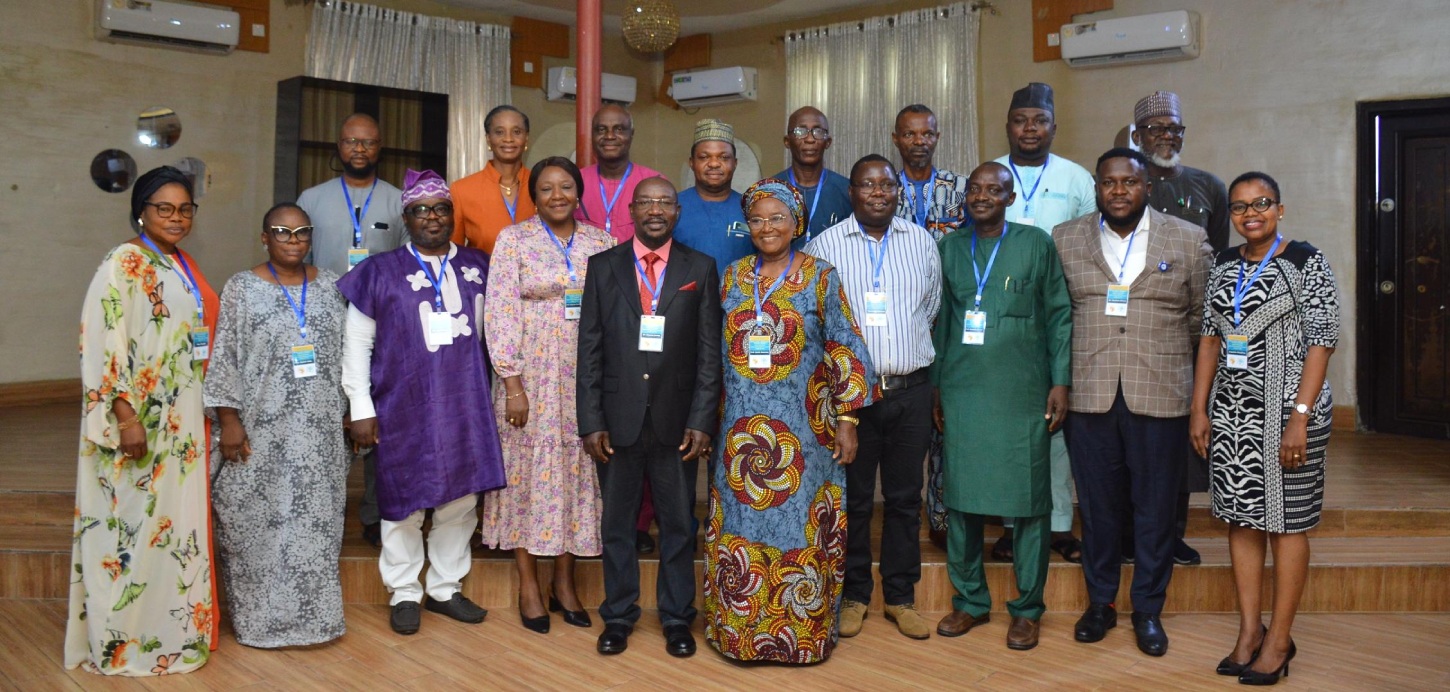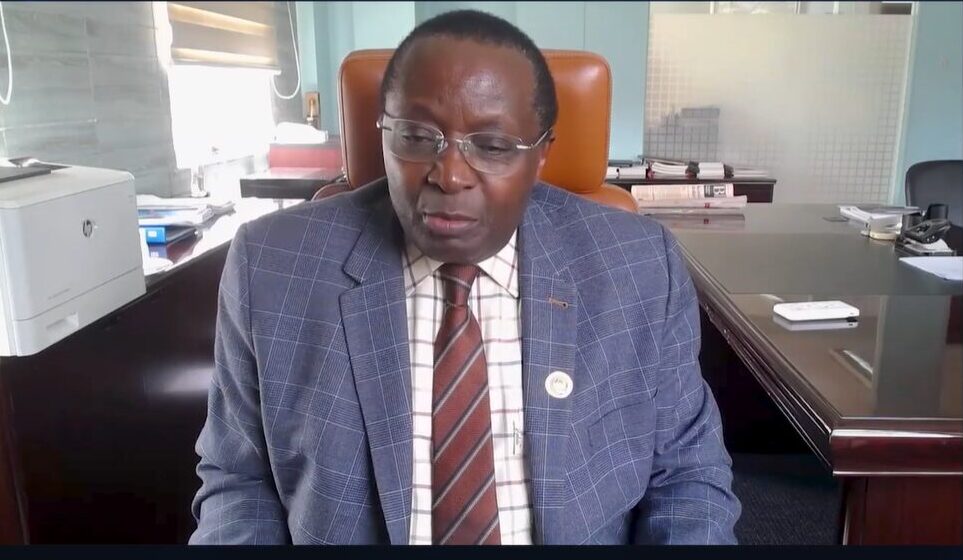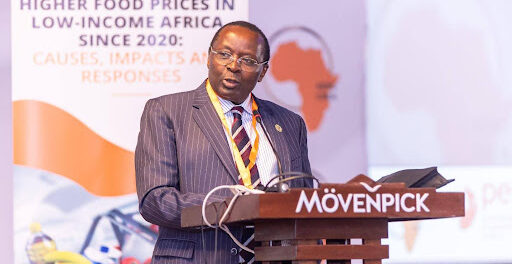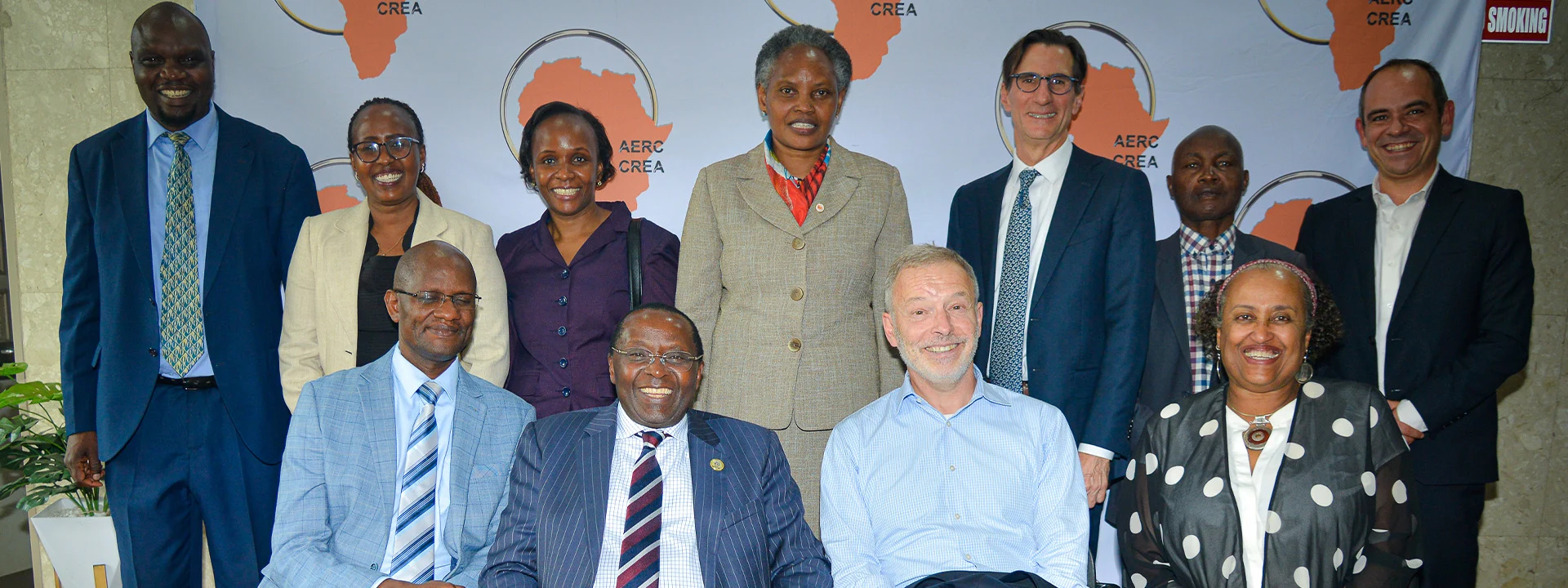

AERC Policy Dialogue on Human Capital Development in Nigeria
October 15, 2024The African Economic Research Consortium (AERC) in collaboration with the Nigerian Institute of Social and Economic Research (NISER) hosted a remarkable policy dialogue on human capital development project in Nigeria. The event, which attracted over 20 participants, consisting of policy makers, researchers and civil society representatives, was a great accomplishment for the Bill and Melinda Gates Foundation (BMGF) funded project. This policy dialogue took place in Abuja, Nigeria on October 10, 2024.
Addressing the participants during the official opening session, Prof. Antonia, T. Simbine, Director General NISER, emphasized the importance of investing in formal and informal education, vocational training, and continuous professional development as a way of developing human capital. She added that to acquire and maintain skills, “we need to attract and retain top talent through competitive compensation, benefits, and work environments.”
Prof. Simbine observed that NISER was founded with a mission to provide information on economic and social ideas that would be pivotal to the development of British West African countries including Nigeria and has since evolved to an autonomous body that carries out independent rigorous research on social and economic issues.
Representing Prof. Victor Murinde, the AERC Executive Director, at this meeting was Dr. Charles Owino, who noted that AERC is a premier capacity building Network which works through research and graduate training in economics supported by a communication and policy outreach programme to deliver its mandate. He added that capacity building is critical for both policy making and institutions that deal with the management of African economies.
Dr. Owino stated that over the last three decades of AERC’s existence it has mentored over 4,500 economics researchers from 35 countries, more than 4,000 Masters graduates and 500 PhD graduates. Many of these are mid to senior level policy makers across the continent.
Regarding this Human Capital Development project supported by BMGF, AERC has undertaken a set of reinforcing activities in sub-Saharan African countries including Nigeria, Ethiopia, Kenya, Uganda, Burkina Faso, Senegal, and Madagascar to build greater policy support for human capital at country level, influence human capital policies, and strengthen African policy research institutions.
“Human Capital is critical for inclusive growth and shared prosperity in Africa. There is need to facilitate regional and country-owned policy reforms, action plans and cross-country learning in four these key areas namely expanding government investment in social services; introducing reforms and innovation to improve service delivery; committing to equity and inclusiveness as well as addressing fertility and gender issues to harness a demographic dividend,” he noted.
Prof. Oluwakemi Okuwa, a research professor of labour and education economics, and head, human capital policy department, (NISER) who was coordinating the meeting noted that the benefits of investing in Human Capital are immense, including: increased productivity and efficiency; improved innovation and entrepreneurship; enhanced competitiveness and sustainability; better quality of life and well-being as well as increased economic growth and prosperity.
In his presentation titled “Leveraging economic development through Human Capital in Nigeria: The roles of foreign direct investment and health,” Dr Kairiza Terrence observed that human capital can be strengthened through external (Foreign Direct Investment, FDI) and internal (health and education) means. Adding that FDI inflows generate crucial knowledge spillovers, driving technological progress and sustainable economic growth.
Dr Kairiza said that Nigeria as the most populous country in Africa has a vast pool of potential human capital of over 200 million people with over one third of them comprising the youths. This means that the country has vast potential to take advantage of the import of human capital in the development nexus. However, growth of the country is not consistent with the human capital potential of the country. “Indications are that human capital can be developed by external means through FDI and through internal channels such as investments in health and education. And Nigeria, as one of the highest recipients of FDI in Africa, is well-positioned to leverage these benefits of human capital to improve development outcomes,” said Dr Kairiza.
The AERC is a leader in policy-oriented economic research in the continent. The Consortium is a public not-for-profit organization devoted to building capacity for economic policy research into problems pertinent to the management of economies in sub-Saharan Africa (SSA). AERC is a network that builds capacity for economists in Africa. The organization integrates high quality economic policy research, postgraduate training, and policy outreach within a vast network of researchers, universities, and policy makers across Africa and beyond.
NISER was founded with a mission to provide information on economic and social ideas that would be pivotal to the development of British West African countries. The institute was affiliated with the University of Ibadan. NISER is now an autonomous body, and its responsibilities include coordinating social and economic research in federal universities. The institute also carries out independent research on social and economic issues as well as providing consultative service to the government based on research findings.







